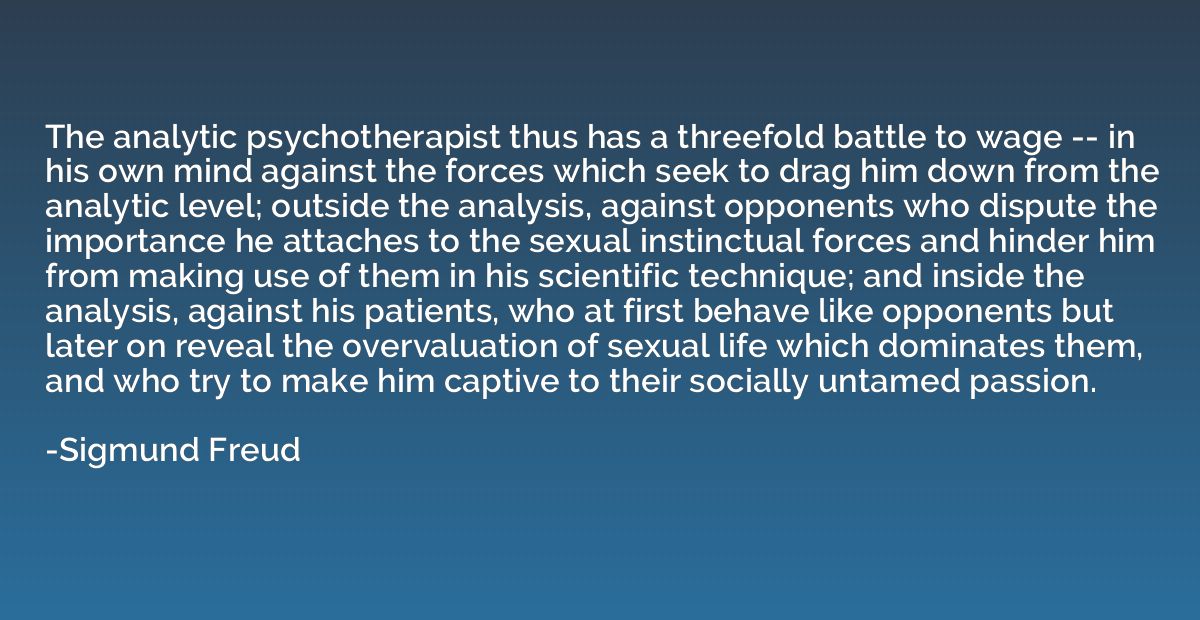Quote by Sigmund Freud
The analytic psychotherapist thus has a threefold battle to wage -- in his own mind against the forces which seek to drag him down from the analytic level; outside the analysis, against opponents who dispute the importance he attaches to the sexual instinctual forces and hinder him from making use of them in his scientific technique; and inside the analysis, against his patients, who at first behave like opponents but later on reveal the overvaluation of sexual life which dominates them, and who try to make him captive to their socially untamed passion.

Summary
This quote suggests that an analytic psychotherapist faces multiple challenges. First, they must defend themselves against personal forces that may distract them from analytical thinking. Second, they must navigate external opposition that questions the significance of sexual instincts in therapy. Lastly, they encounter resistance from patients who initially resist the therapist but later reveal a fixation on sex, attempting to draw the therapist into their unrestrained desires. The quote underscores the complexity and conflicts faced by psychotherapists in maintaining objectivity and implementing scientific techniques in the treatment of patients.














